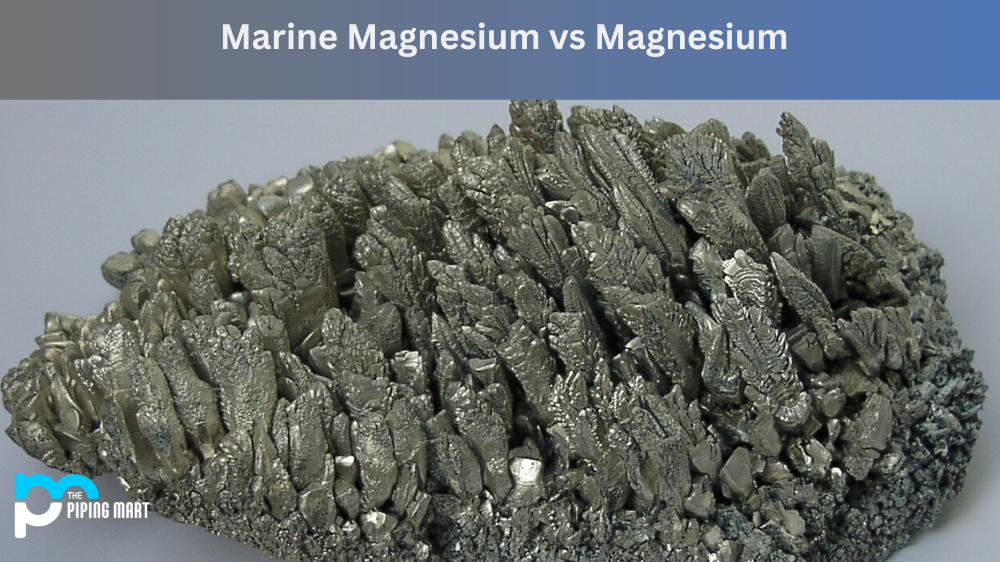Magnesium is an essential mineral that plays a critical role in the functioning of our bodies. But did you know there is more than one type of magnesium? That’s right, there are different forms of magnesium on the market today, and they each have unique properties. This post will compare marine magnesium vs. magnesium to help you decide which supplement is suitable for your needs.
What Is Marine Magnesium?
Marine magnesium, also known as “sea” or “ocean” magnesium, is derived from seawater. It’s a more premium form of magnesium because it contains up to 70 trace minerals and electrolytes in addition to the main active ingredient—magnesium chloride. These trace minerals have been found to positively affect overall health, such as better bone density and improved cardiovascular health.
What Is Magnesium?
Magnesium (also referred to as “standard” or “traditional”) is derived from land-based sources like mined rocks and soil deposits. This form of magnesium has fewer trace minerals than marine magnesium. However, it can still provide essential benefits, such as improved digestion, better sleep quality, and enhanced energy production within the body.
Differences Between Marine Magnesium and Magnesium
The difference between marine and standard magnesium lies mainly in the source material used during production—seawater versus land-based sources—and the additional trace minerals present in marine supplements. While both forms of magnesium can be beneficial for overall health, some people may prefer one over the other depending on their individual needs and preferences. For example, those looking for an extra boost in electrolyte intake might opt for marine over standard supplements due to their higher concentration of trace minerals. On the other hand, those who do not need additional electrolytes may find that standard supplements are sufficient for their needs.
- Marine magnesium is derived from seawater, while magnesium is derived from land-based sources.
- Marine magnesium contains higher magnesium levels than magnesium from land-based sources.
- The body more readily absorbs marine magnesium than from land-based sources.
- Marine magnesium is more expensive than magnesium from land-based sources.
- Marine magnesium is considered a more premium product than magnesium from land-based sources.
Conclusion:
In summary, choosing between marine magnesium vs. traditional/standard types will depend on your individual needs and preferences. Both forms can be beneficial when taken regularly, but they vary in their active ingredients and concentrations of trace minerals present in each product type. When deciding which type is best for you, consider your goals and research various products before making a final decision. These steps will help ensure you get the most out of your chosen supplement!

Meet Bhavesh, a seasoned blogger with a wealth of knowledge and experience. From metal products manufacturing to retail, Bhavesh has a diverse background in various industries and is dedicated to sharing his insights and expertise with readers.




